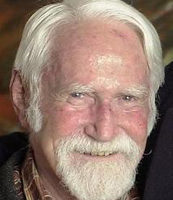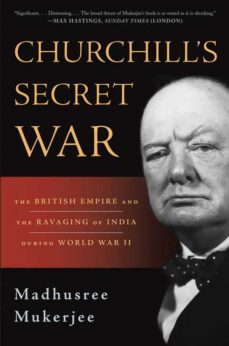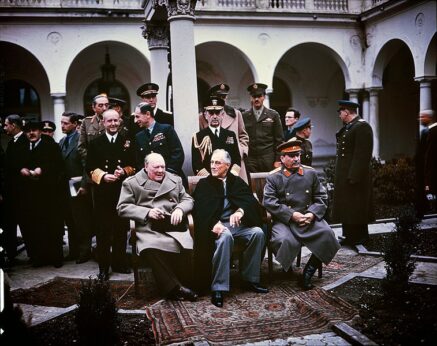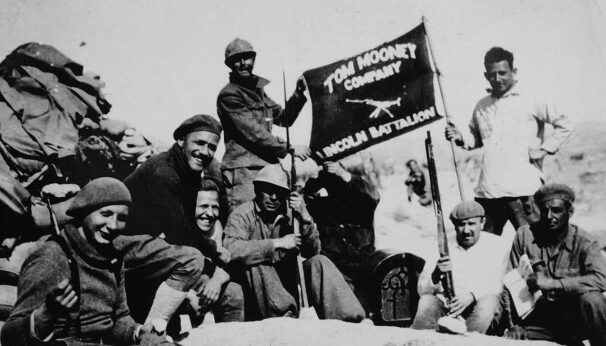
Netflix’s four-part documentary Churchill at War is another effort to make British Prime Minister Winston Churchill the great hero of the struggle to defeat Hitler fascism.
To convince us, director Malcolm Venville wheels out two supreme experts on fascism: former President George W. Bush, elected by the U.S. Supreme Court, and former British Prime Minister Boris Johnson. Tory politicians, both appreciate Churchill’s oratory: “We will fight on the beaches. We shall fight on the landing grounds. We shall fight in the fields and in the streets,” etc. Both Bush and Johnson solemnly assure us that Churchill was the greatest anti-Hitler leader of all!
Yet others are more deserving of the anti-fascist title: The millions of Spaniards and thousands of global volunteer “premature anti-fascists” who went to fight Franco fascism in Spain in 1936-39; Jean Moulin, leader of the French underground, tortured and murdered by the SS in Nazi-occupied France; the Red Army soldiers and millions of Soviet citizens who died fighting the Nazi invaders.
And yes, the 45,000 British subjects who died in the Nazi blitz of Great Britain.

I knew some of these heroes. Hans Lebrecht, People’s World correspondent in Israel, a German Jew with bright blue eyes and blond hair, a courier for the anti-fascist movement inside Nazi Germany. Hans looked so Aryan that the Gestapo let him through every Nazi checkpoint as he carried vital information on the struggle against Nazism from Germany into Switzerland and back again. He took his life in his hands every minute he spent inside Nazi Germany.
I was on guard when I switched on my TV and watched Churchill at War. I was stunned when the film focused early on Churchill’s role as First Lord of the Admiralty in the Gallipoli debacle during World War I. Churchill bullied the British high command to carry out his scheme to send the British fleet up the Dardanelles and land 200,000 Allied soldiers at the base of the Gallipoli Heights.
Mostly Australians and New Zealanders, the soldiers were ordered to storm the heights. The film reports that 147,000 Allied soldiers died in this fiasco, a defeat so total Churchill was forced to resign. Yet Churchill volunteered for combat duty as a soldier in the trenches of France, conspicuously leading charges across no-man’s-land, posing for photographs of himself to be published in British newspapers. Born to high privilege, he resurrected his career.
Unmentioned in the film is Churchill’s infamous role in the sinking of the Lusitania on May 7, 1915, in which 1195 civilians died. A 2015 centennial article in IrishCentral, an online history website, quotes at length from a book by Erik Larson, Dead Wake: The Last Crossing of the Lusitania.
As First Lord of the Admiralty, Larson writes, Churchill had been informed of the dangerous course of the Lusitania, cruising at low speed into German U-Boat-infested waters 11 miles off the Irish coast. Churchill did not order the captain of the Lusitania to take the far safer route over the northern end of Ireland. Nor did he order a British Navy escort. Churchill had loudly proclaimed that it was going to take a major disaster to force the U.S. to terminate its isolationism and enter World War I. Writes IrishCentral, “If the sinking of the Lusitania was, as it appears, a result of deliberate, calculated, inaction by Churchill, it surely ranks among the greatest sins of omission ever committed.”
But it did fulfill Churchill’s fondest dream, dragging the U.S. into this disastrous war driven by imperialist rivalry in which as many as 40 million soldiers and civilians died.
Churchill at War documents his obsession during WWII with preserving and expanding the British Empire. He calculated that it was impossible for the British to defeat the Nazi Third Reich by themselves. His full-time focus was peppering President Franklin D. Roosevelt with telegrams, letters, speeches on the floor of the House of Commons, and on the radio, pleading with FDR to approve weapons and food to Britain then enduring constant bombardment by Nazi bombers that killed and maimed tens of thousands of British citizens. He wanted the U.S. to declare war on fascist Germany.
The film shows Churchill and his cohort celebrating the Japanese attack on Pearl Harbor, the U.S. declaration of war on Japan, and Germany’s declaration of war on the U.S. The film also reports that as soon as the Nazis invaded the Soviet Union, on June 22, 1941, Churchill sent Stalin word that Britain was now in alliance with the USSR.
 The film dwells on the famine in Bengal in 1943 because “London”—i.e., Churchill—refused to approve emergency food deliveries to the starving Indian masses, claiming the food was needed to feed Allied soldiers. British commentator Afua Hirsch comments on this tragedy reflecting research by Madhusree Mukerjee, author of Churchill’s Secret War: The British Empire and the Ravaging of India during World War II.
The film dwells on the famine in Bengal in 1943 because “London”—i.e., Churchill—refused to approve emergency food deliveries to the starving Indian masses, claiming the food was needed to feed Allied soldiers. British commentator Afua Hirsch comments on this tragedy reflecting research by Madhusree Mukerjee, author of Churchill’s Secret War: The British Empire and the Ravaging of India during World War II.
Hirsch tells the audience, “Churchill’s attitude toward his beloved Empire’s ‘Crown Jewel’ fostered a famine that killed millions.”
The Guardian reports that “Rice stocks continued to leave India even as London was denying requests from India’s viceroy for more than 1m. (million) tonnes of emergency rice supplies in 1942-43. Churchill has been quoted as blaming the famine on the fact that Indians were ‘breeding like rabbits’ and asking how, if the shortages were so bad, Mahatma Gandhi was still alive.”
Afua Hirsch answers all these disclosures about Winston Churchill: “It is a really problematic part of the legacy.”
Perhaps the most stunning part of the series is the reenactment by actors of a key moment in the Big Three summit at Tehran Nov. 28-Dec. 1, 1943. It is the first meeting of Soviet leader Joseph Stalin, British Prime Minister Winston Churchill, and U.S. President Franklin Delano Roosevelt. This is a great victory for the anti-fascist cause, the coming together of the UK, the U.S., and the USSR in a Grand Alliance to defeat Hitler.

Stalin demands an answer: When will the Western allies launch the Second Front? Churchill hems and haws, arguing for his scheme, deployment of U.S. and British forces in North Africa, followed by the landing in Sicily. Attack the Axis in its “soft underbelly,” to use his words (not heard in the film).
The Netflix documentary reports that Churchill’s strategy was to divert U.S. forces to the Mediterranean to help protect the British Empire, Egypt, the Suez Canal, and India, sidestepping the worldwide demand for the opening of the Second Front.
Stalin shakes his head. No, that is not the Second Front promised to relieve pressure on the Soviet forces who were bearing the overwhelming burden of the war.
Churchill glances at FDR, assuming that he will support his position. FDR smiles and quietly informs Churchill, “I agree with Marshal Stalin.”
A look of stunned disbelief spreads across Churchill’s jowly face. Stalin and FDR agreed on a cross-channel invasion of France from England, the long-delayed opening of the Second Front.

The film even records that Churchill was so desperate to exclude the Soviets, that he argued that captured soldiers of the fascist Wehrmacht be disarmed, then rearmed by the U.S. and Britain and turned against the Soviet Army as thousands of Red Army troops fought their way westward toward Berlin. This scheme would have been treachery in the extreme against the anti-fascist coalition.
It is a sign of the sophistication of the British people, included in the Netflix film, that in their first postwar election, they dumped Churchill in a landslide and elected Labor Party candidate Clement Attlee as Prime Minister. The voters were saying, “Thank you very much, Mr. Churchill. Now it is time to pass socialized medicine.” The British House of Commons did just that and Attlee signed it.
This documentary tries to smooth over Churchill’s many “sins” of omission and commission even as it does report them. But I will stick with my anti-fascist heroes, starting with the veterans of the Abraham Lincoln Brigade.










